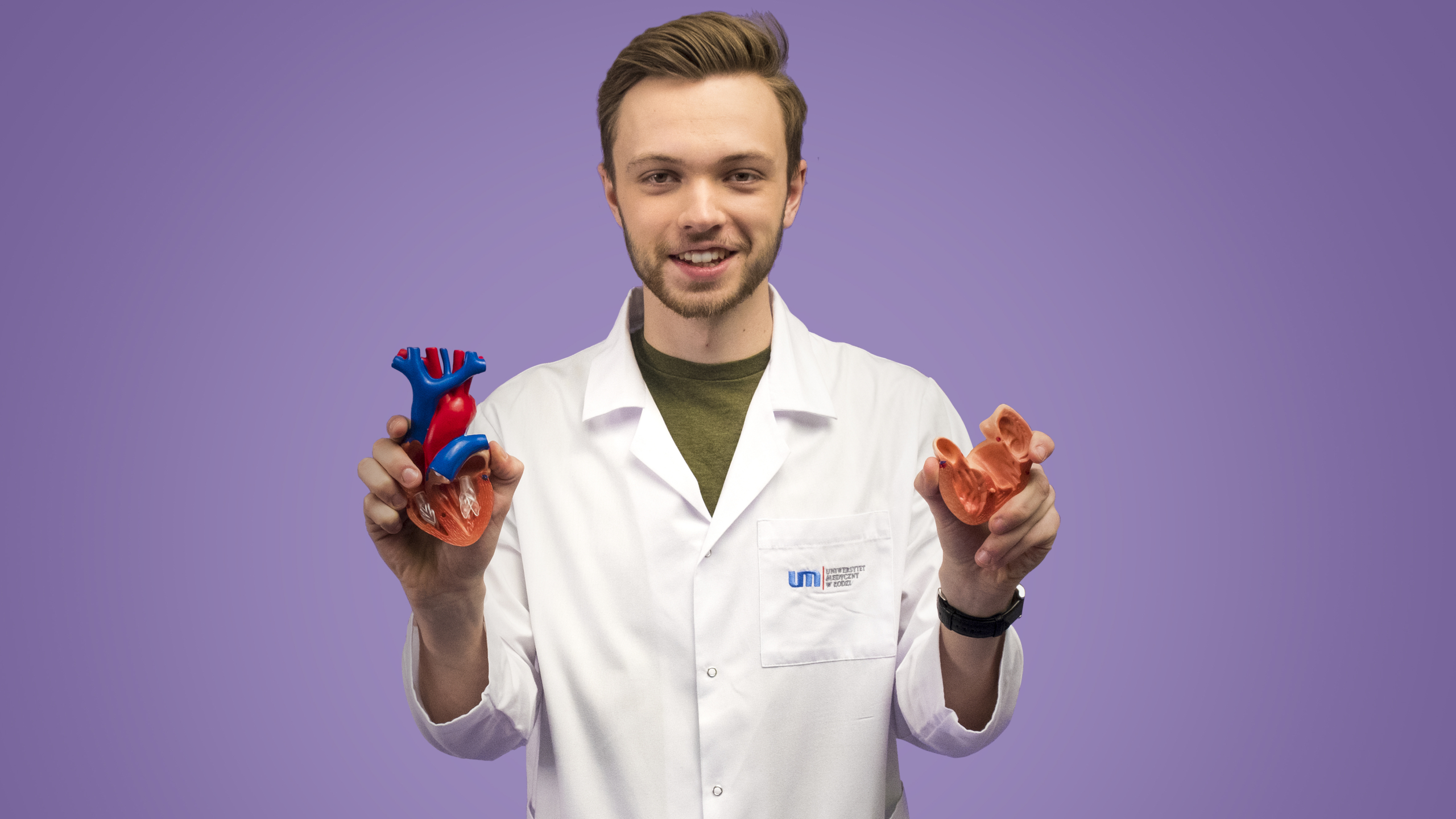6MD program at Medical University of Lodz

Study Medicine in Poland – 6-Year MD Program at the Medical University of Łódź
1. 6MD program overview
2. Why choose 6MD program at the Medical University of Lodz?
3. Program description
4. Graduate profile
5. Career opportunities
6. Join us!
6MD program overview
The Medical University of Łódź is the largest medical university in Poland. We have been educating future doctors since 1945. We combine multi-generational teaching traditions with innovative teaching methods. Therefore, if you want to choose the medical program and aim to gain comprehensive knowledge – study at MUL. Here, you will deepen your knowledge, acquire necessary skills, and essential clinical preparation.
6MD program at the Medical University of Lodz is designed for high school/secondary school graduates who wish to study Medicine in English language in Poland.
The medical program is for you if:
- You are passionate about the world of biology, chemistry, physics, and medicine,
- You want to gain the necessary qualifications to practice as a doctor,
- You are disciplined, responsible, and ready for continuous learning,
- You feel a calling to work in healthcare.
At the Medical University of Łódź, you will receive an education that will prepare you for even the most challenging tasks that come with the medical profession.
Intake: once a year in Fall
Length of the academic year: October – June
Degree obtained: LEKARZ (Doctor of Medicine)
6-year MD program is known in India as MBBS ( Bachelor of Medicine, Bachelor of Surgery).
Why choose 6MD program at the Medical University of Lodz?
The studies last 12 semesters and are conducted in a unified master’s system. The curriculum complies with legal requirements and is adapted to the challenges posed by 21st-century medicine.
During your studies, you will gain knowledge in:
- Preclinical subjects – including anatomy, pathomorphology, pharmacology, histology, physiology, as well as chemistry and biology with genetics and ecology,
- Clinical subjects – these are the so-called core subjects that will familiarize you with various medical specializations.
Program description
The aim of the 6MD program is to prepare graduates to practice as doctors by teaching the basic theories and principles of medical practice, communication skills, and patient cooperation, as well as preparing them to be human resources leaders.
The 6MD program is a unified master’s degree that lasts 6 years (12 semesters). The curriculum includes preclinical subjects (basic subjects such as anatomy, medical chemistry, biology with genetics and ecology, biophysics, physiology, histology, pathomorphology, pharmacology) taught mainly in the first three years, and clinical subjects (core subjects such as internal medicine, surgery, pediatrics, neurology, psychiatry, gynecology and obstetrics, dermatology and venereology, infectious diseases) taught in the last three years. The medical curriculum also includes IT and biostatistical preparation, social and humanities subjects such as medical ethics, history of philosophy, sociology, history of medicine, as well as physical education and the study of congress languages. Particular emphasis is placed on developing the proper professional attitudes of graduates, their communication skills with patients, and understanding the psychosocial factors affecting health.
In recent years, thanks to the “Operation Integration” program, the e-learning offer of the program has been significantly expanded, allowing students asynchronous access to all lectures. The structure and content of clinical classes have also been redesigned so that students learn proper clinical reasoning – from symptoms, through diagnostics, to diagnosis, prognosis, and treatment. Related subjects have been combined into coherent modules taught and examined together (e.g. anatomy, histology, cytology, and embryology as the biostructure module).
Graduate profile
Graduates of the medical program have the appropriate knowledge and practical skills in prevention, treatment, and rehabilitation necessary to practice as doctors, ensuring support and considering the highest good of patients. They should have:
- Good clinical preparation
- Problem-solving skills
- Ethical attitude towards patients
- Willingness to continue education
- Ability to work in a team
- Proper professional attitudes
Clinical skills of graduates include:
- Taking medical history and conducting appropriate examinations
- Interpreting results and making preliminary clinical diagnoses
- Proper diagnostic procedures
- Interpreting additional laboratory, imaging, functional, and histopathological test results
- Interpreting preliminary clinical diagnoses and referring patients for specialist treatment
- Recognizing life-threatening conditions and performing efficient medical interventions to maintain basic life functions
- Assessing health problems in terms of physical, social, psychological, and cultural factors
- Knowledge of disease prevention and health promotion principles
Career opportunities
Graduates of the 6MD program can find employment in:
- Public and private health care facilities, mainly in inpatient care (clinics, hospitals), where they can gain necessary experience and develop their professional careers
- Research institutions and research and development centers
- Basic science departments and clinics of higher medical schools as scientific and teaching staff
- Emergency medical services
- Institutions providing counseling and sharing knowledge in the field of health education
- As health care managers; continuing their careers as directors or managers of hospitals, health centers, or clinics. However, this requires broader qualifications than medical studies, additional knowledge, and skills in management or public health are needed
- They can also open their own medical practices, which, with appropriate work and financial investment, can develop into larger centers – hospitals, clinics
Graduates of the medical program have the opportunity to undertake a postgraduate internship, after which they take the Final Medical Exam. The result of this exam is the basis for choosing one of the many specializations. Graduates can also apply for postgraduate studies and doctoral studies. They can also enhance their qualifications by participating in training and courses, for example, in management and Public Relations.
Read career stories of our Alumni: https://studymed.umed.pl/graduating-students-alumni/alumni/alumni-stories/
Join us!
Embark on a rewarding medical career with the Medical University of Łódź. Do you want to find out more about admission or students’ life? Sign up for the webinar for applicants!